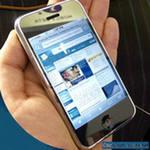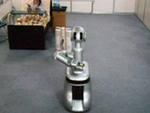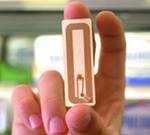
Заглавная страница Избранные статьи Случайная статья Познавательные статьи Новые добавления Обратная связь FAQ Написать работу КАТЕГОРИИ: ТОП 10 на сайте Приготовление дезинфицирующих растворов различной концентрацииТехника нижней прямой подачи мяча. Франко-прусская война (причины и последствия) Организация работы процедурного кабинета Смысловое и механическое запоминание, их место и роль в усвоении знаний Коммуникативные барьеры и пути их преодоления Обработка изделий медицинского назначения многократного применения Образцы текста публицистического стиля Четыре типа изменения баланса Задачи с ответами для Всероссийской олимпиады по праву 
Мы поможем в написании ваших работ! ЗНАЕТЕ ЛИ ВЫ?
Влияние общества на человека
Приготовление дезинфицирующих растворов различной концентрации Практические работы по географии для 6 класса Организация работы процедурного кабинета Изменения в неживой природе осенью Уборка процедурного кабинета Сольфеджио. Все правила по сольфеджио Балочные системы. Определение реакций опор и моментов защемления |
Дидактические материалы к занятиям 7.1.1,7.1.2, 7.1.3Содержание книги
Поиск на нашем сайте
Lesson 7.1.1. Technological Innovations in Modern Life Ex 1. What digital devices do you know? Name the devices you see in the pictures. Which of them do you use in your everyday life? Match the sentences with the pictures. 1. Computers are widely used in education. 2. RFID chips will help us track ordinary objects like car keys or books. 3. ATMs dispense money to customers by the use of a PIN-protected card. 4. Digital devices help to control air traffic. 5. Robots in the home will help us with the housework. 6. With the Internet in your mobile phone you can always find any required information, send messages to your friends.
Listening Ex 2. Listen to four people talking about how they use computers at home. Ex 3. а)Write each speaker’s job in the table. b) Listen again and write what each speaker uses their computer for. Ex 4. a) Listen to the dialogue where Antonia and Kate discuss communications technology. b) Match the sentence halves to complete what Antonia says she needs to do. 1. it’s not very convenient a. charging my phone in a customer’s office 2. it’s a bit embarrassing b. be able to do all these things on the move 3. I want c. emails all the time 4. I send a receive d. be able to read the attachments 5. I need to e. the basic functionally of my current phone 6. I’d like to f. only being able to success all my information when I’m in the office. Reading Ex 5. Read the article “The Digital Age”. The digital age We are now living in what some people call the digital age, meaning that computers have become an essential part of our lives. Young people who have grown up with PCs and mobile phones are often called the digital generation. Computers help students to perform mathematical operations and improve their maths skills. They are used to access the Internet, to do basic research and to communicate with other students around the world. Teachers use projectors and interactive whiteboards to give presentations and teach sciences, history or language courses. PCs are also used for administrative purposes – schools use word processors to write letters, and databases to keep records of students and teachers. A school website allows teachers to publish exercises for students to complete online. Students can also enrol for courses via the website and parents can download official reports. Mobiles let you make voice calls, send texts, email people and download logos, ringtones or games. With a built-in camera you can send pictures and make video calls in face-to-face mode. New smartphones combine a telephone with web access, video, a games console, an MP3 player, a personal digital assistant (PDA) and a GPS navigation system, all in one. In banks, computers store information about the money held by each customer and enable staff to access large databases and to carry out financial transactions at high speed. They also control the cashpoints, or ATMs (automatic teller machines), which dispense money to customers by the use of a PIN-protected card. People use a Chip and PIN of a PIN protected card. People use a Chip and PIN card to pay for goods and services. Instead of using a signature to verify payments, customers are asked to enter a four-digit personal identification number (PIN), the same number used at cashpoints, this system makes transactions more secure. With online banking, clients can easily pay bills and transfer money from the comfort of their homes. Airline pilots use computers to help them control the plane. For example, monitors display data about fuel consumption and weather conditions. In airport control towers, computers are used to manage radar systems and regulate air traffic. On the ground, airlines are connected to travel agencies by computer. Travel agents use computers to find out about the availability of flights, process, times, stopovers and many other details. Answer the following questions:
What does the expression “digital age” mean? What kind of people do we name ‘the digital generation”? What digital devices are mentioned in the text? In what way do digital devices make our life easier? Ex 6. Guess the meaning of the following words and word combinations: built-in, database, GPS navigation system, PIN, digital, PIN card, automatic teller machine (ATM). Ex 7. Write an essay on using computers by students Language development Ex 8. Fill in the words from the list, then make sentences using the completed phrases: machine, correctly, switch on, analog, equipped with, guarantee, safety, recording, device, washing, the appliance, certificate, installed, earthing, digital, video Ex 9. Fill in the correct preposition, then make sentences using the completed phrases: in, per, at, by, up, for, on, at, for, about 1. work ____ using a signal 6. ___ cashpoints 2. _____ a constant rate 7. information _____ money 3. frames ___ second 8. all ___ one. 4. grow ____ with mobile phones 9. to pay ____ goods 5. ___ the ground 10. enroll ___ courses Speaking Ex 10. In pairs, discuss these questions. 1. Do you use digital devices in everyday life? What kind of devices do you use? 2. How will computers be used in future? 3. What new digital devices you think will have been developed by 2020? Ex 11. Match the verbs with the nouns. 1. give a money 2. keep b a PIN 3. access c databases 4. enter d presentations 5. transfer e records Ex 12. In small groups, choose one of the devices below and discuss how it makes your life easier. Washing machine Computer Mobile phone GPS navigation system Digital camera
|
|||||
|
Последнее изменение этой страницы: 2016-09-20; просмотров: 467; Нарушение авторского права страницы; Мы поможем в написании вашей работы! infopedia.su Все материалы представленные на сайте исключительно с целью ознакомления читателями и не преследуют коммерческих целей или нарушение авторских прав. Обратная связь - 18.191.200.21 (0.01 с.) |










